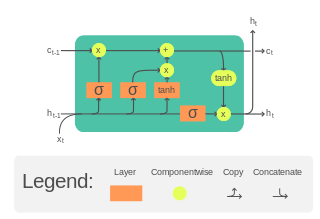Knowledge Gathering #2
Replies: 2 comments 11 replies
-
|
Right now, there is no complete theory to govern any of the code here. This is more of an experimental playground, to see what it might take to construct a system to work in a certain way. So far, I've exposed two major issues that I don't have a good solution for. The design is not meant to "vaguely resemble" the real world; it is meant to actually handle that actual real world, as it really is, in full glory and detail. In that, I think it succeeds. To see this, though, you have to abstract out the question of "what is the real world?" and "how does one interact with it?" and do so in a coherent manner so that it can be described via programming and mathematical terminology, and not just vague hand-waving. Hand-waving is easy. Making it concrete, making it work, is hard. As to "acquiring knowledge": there is a huge amount of material at https://github.com/opencog/learn that describes one way of doing this. Of course, deep learning and LLM's is another, and there are also several other techniques. For example, random forests fail to scale simply and easily to large GPU clusters, but otherwise "work well", if you ignore the scaling problem. opencog/learn has a different set of scaling issues: No one is trying to figure out how to backprop it, or get it to run on GPU's. None of the stuff in "learn" is based on "maximizing reward". Its all based on maximizing descriptive accuracy of perceived externalities. Of building a good model of the external world. Two references: first, a basic blog on complexity:
I don't like this blog post, but it does sort-of get a general idea across. The other half is this:
I'm interested in using entropy-complexity-type measures/systems to build "world models": models that accurately capture what the external world is like. |
Beta Was this translation helpful? Give feedback.
-
|
I think I'm going to check out the examples to have a better what's going on and meanwhile do some more reading about complexity and regulator / controllers. There is also ethical regulators which I might ponder about... |
Beta Was this translation helpful? Give feedback.

-
Hello, I want to address here somewhat high level thoughts about learning. I hope this is at least somewhat relevant for the consideration what to do between perception and action.
The IRC chat allows the agent to interact with a non-deterministic system and in this sense, it vaguely resembles the real world ?
So, what is a preferable way to acquire knowledge in such an environment ? If we let the agent interact with any kind of environment, it forms hypotheses and then tests these hypotheses by using some kind of reward (or motivational) function (or any other similar mechanism).
Hence, over time, the agent gathers an ever increasing pile of information and so its behavior becomes more successful with respect to the reward function. Now can we correctly describe this information as knowledge. Maybe another (fundamentally different agent) might gather a complete different pile of hypotheses in the same environment, at least if the world resembles out natural world.
Hmm, I think this leads us to Occam's Razor...
PS: I added this just because I stumbled on this just now: Is it possible and or desirable to simulate delayed gratification ?
Beta Was this translation helpful? Give feedback.
All reactions